Environmental Impact!
Emissions
From May 2012 to February 2015 CSU’s environmental impact is equivalent to:
Offsetting the annual greenhouse gas emissions from 9 passenger vehicles.
Offsetting the CO2 emissions from the consumption of 5,430 gallons of gasoline, 1 tanker truck worth of gasoline, the total energy use of 4 homes for one year, 113 barrels of oil & the annual electricity use of 6 homes.
Offsetting CO2 emissions from staving off global warming via the intake & storage of carbon of 1,242 tree seedlings grown for 10 years & the annual carbon intake and storage in 10 acres of pine or fir forests.
Counterbalancing CO2 emissions from 2,018 propane cylinders used for home barbecues.
Green Cleaning
CSU obtained a Green Campus Award from Capaco in 2008 by using "green" chemicals for cleaning:
- Glass & Multi-Purpose Cleaner
- Bathroom Cleaner & Scale Remover
- Low Foam Neutral Floor Cleaner
- Multi-Surface Cleaner
Landscape Design
CSU is home to approximately 40 different species of trees.
Time sensitive sprinklers ensure that the trees have an adequate amount of water to sustain them!
CSU utilizes native plants and mulch to minimize watering efforts!!
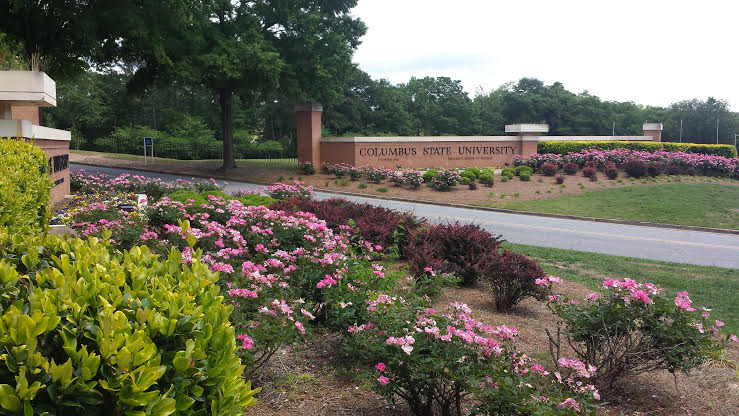
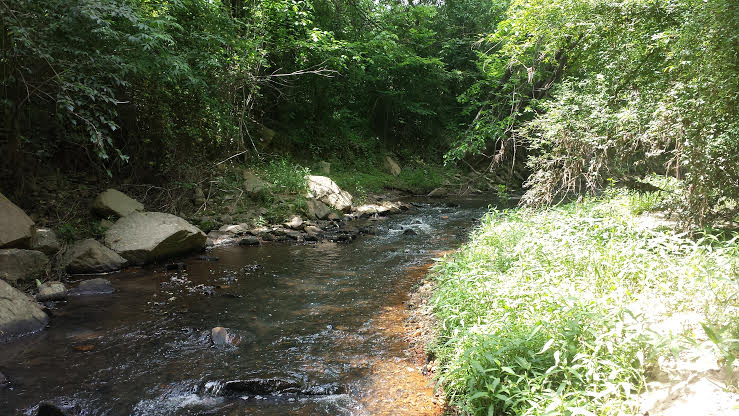
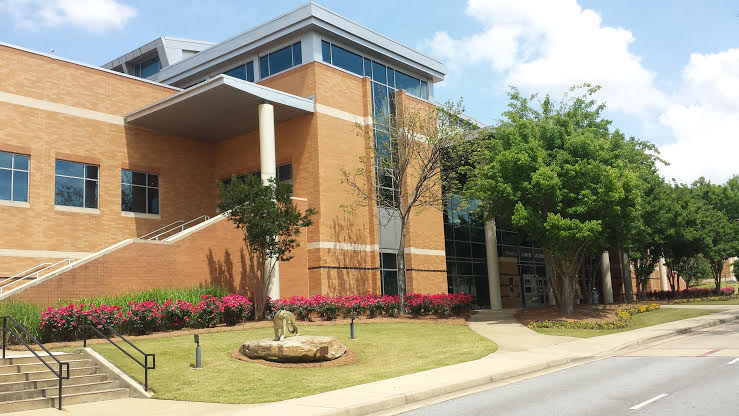
Lighting and Energy
CSU was awarded an Energy Grant to fund:
- Installation of motion sensors
- Installation of 2 sets of solar panels(Soccer Field & on the roof of Morrow Clubhouse)
- Replacement of T12 light bulbs to energy efficient T8 light bulbs
- Installation of LED bulbs for pathway lighting.
- CSU is also actively phasing out mercury filled fluorescent lights with environmentally friendly led lights.
Solar Panels
CSU has 2 sets of Solar Panels located on Main Campus. One is located on top of Morrow Clubhouse and the other near the Soccer Field Complex.
These panels power pathway lighting at CSU near the Soccer Field and Cunningham Center.
From August 2013 to March 2015, CSU saved 38,000 tons of Carbon Dioxide from just one of our 2 solar panels!
Solar Panel usage decreases power costs, making this Georgia Power bill $2.87.
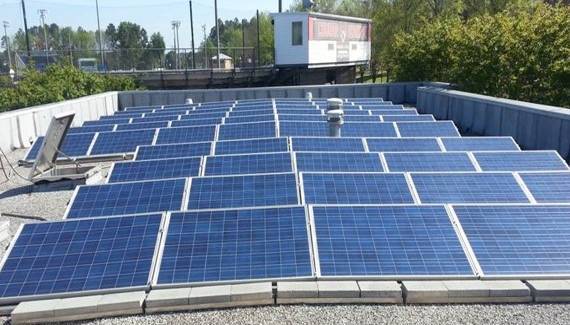

Charging Stations
We have solar powered charging stations placed in front of Howard Hall. These stations have solar panels built into them, using the sun's energy to provide power to the station's outlets. Thus, our students are able to charge their devices while hanging out in between classes. We take pride in being able to provide clean and sustainable energy to our students!
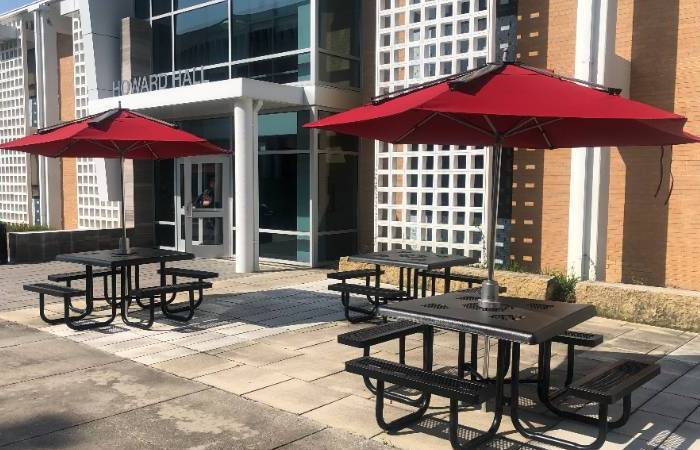
Recycling
CSU recycles:
- Aluminum
- Anti Freeze
- Batteries
- Cardboard
- Electronics
- Motor Oil
- Paper
- Plastic
- Scrap Metal
- Toner Cartridges
CSU strategically places recycling stations for batteries, plastic, aluminum and mixed paper around campus to make recycling effortless!
We have multiple large recycling bins throughout campus, as well as a designated area for cardboard recycling. Our cardboard bin can be found next to our single stream recycling trailer, which are located next to our warehouse (address: 300 Algonquin dr, Columbus GA 31907).
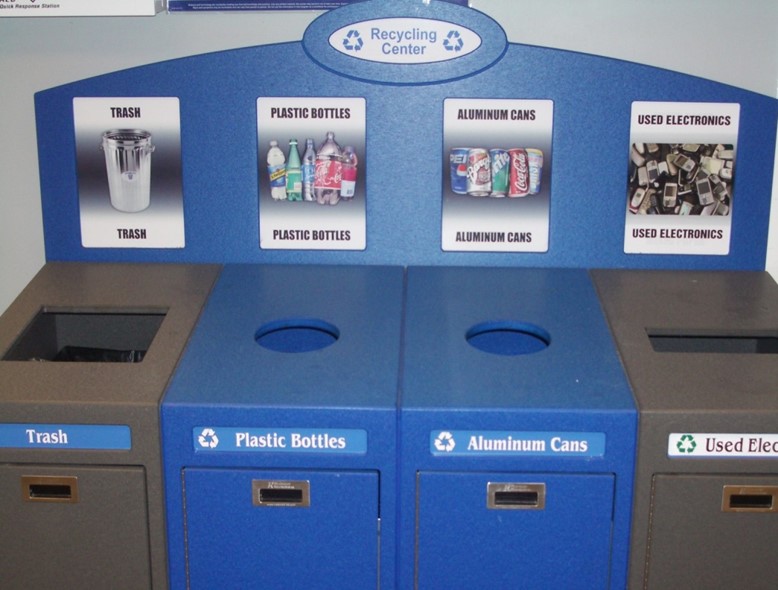
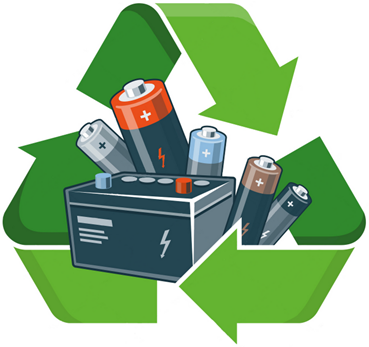
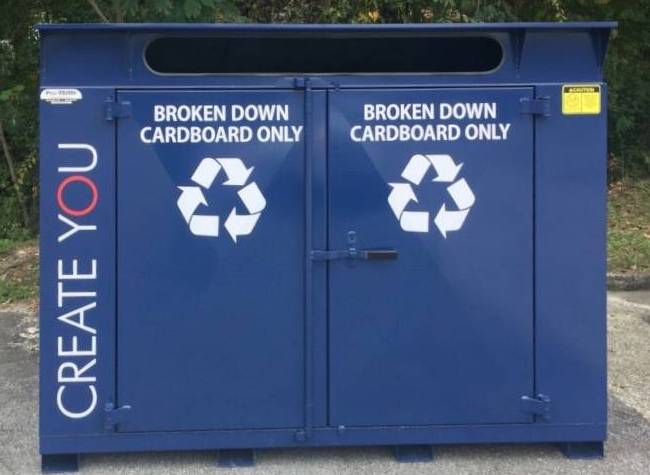
Facts and Figures
CSU bailed 38.475 tons (76,950 lbs) of cardboard from October 2014 to April in 2016!
The average weight of each bale is about .361 tons (722 lbs)!
On average CSU makes one bale every 3 days!
Funds received will serve to further recycling efforts around campus!
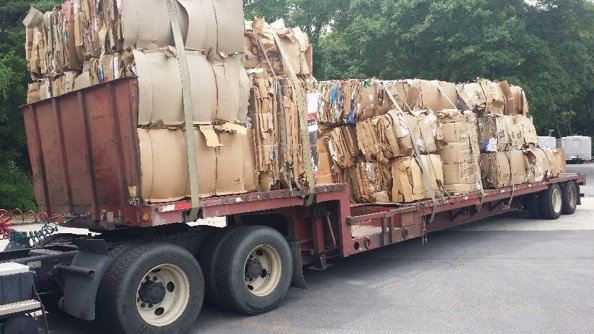
Cardboard recycling by the pound:
- October 18, 2018 - 5000+ pounds
- February 8, 2019 - 4500+ pounds
- April 30, 2019 - 5000+ pounds
- June 20, 2019 - 3900 pounds
- October 25, 2019 - 3900 pounds
Columbus State University utilizes Single Stream Recycling on both Main Campus and RiverPark Campus. Single Stream Recycling is a simplified method of recycling where paper, plastic, and aluminum are ALL placed in one bin and sorted later at Columbus Consolidated Government (CCG) Recycling Center. We hope to increase the amount of recycling on campus by both Faculty/Staff along with our student body.
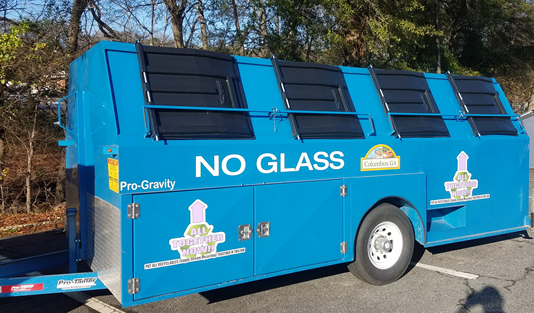
Recyling 18 Net Tons of Paper and 13,860 lbs. of Plastics Saved:
- 306 Trees Saved
- 126,000 Gallons of Water Saved
- 111 Cubic Yards of Landfill Offset
- 1,288 Cubic Yards of Air Pollution Offset
- 4,042 Gallons of Oil Saved
- 107,637 KWH of Energy Saved
CSU recycles batteries each month!
From October 2014 to August 2018, CSU recycled 8746.5 lbs of batteries!
A new initiative has been taken to place battery recycling bins near other recycling on campus!
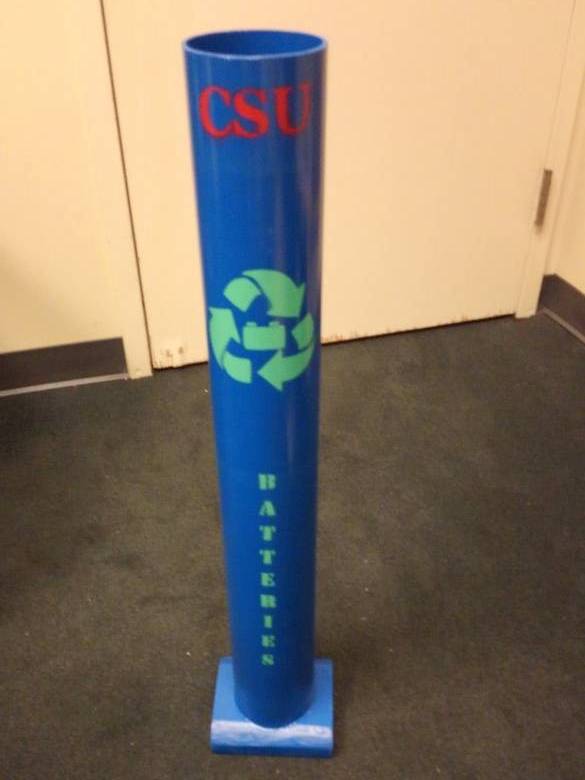
Need to recycle your batteries? Bring them to campus and we will do it for you! Here are some pictures from a recent drop off at a recycling center:
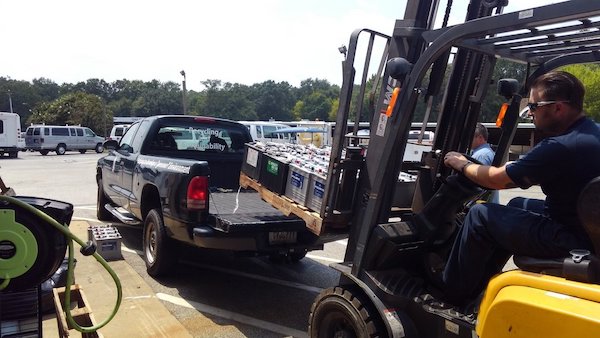
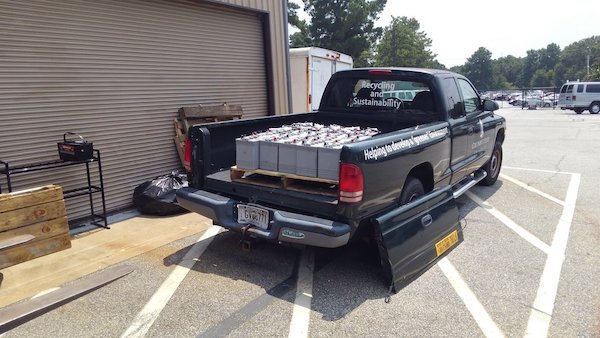
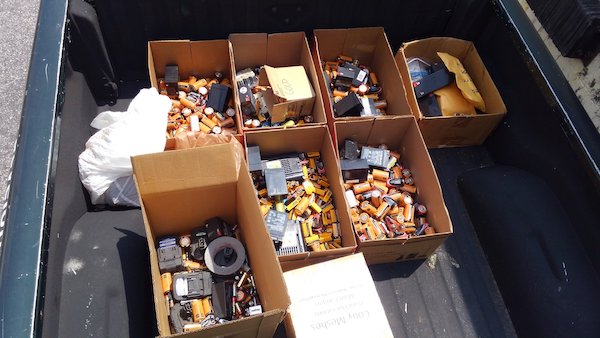
Toner Recycling Program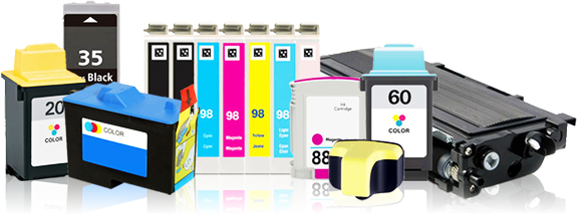
Since 2012, CSU's Staff Council has been recycling toner and ink cartridges to keep them out of the landfills and to generate a small amount of revenue which is used to fund programs like the Frank D. Brown Book Scholarship for staff and staff development grants. Easy to coordinate and manage, here are the simple steps based on your location. Thanks for your support of sustainability and Columbus State University!
Toner/Ink Cartridge Pick-up Procedures
Main Campus (Except Library):
Whenever you replace your printer or department's toners/ink cartridges, place the old toner in the new one's packing wrapper and box. Mark each box as USED and place beside your regular office trash or in your known pick-up point. Submit an eQuest to Logistics for pickup, listing the location and the amount of boxes to be picked up.
RiverPark Campus, CCSSC, and Oxbow Meadows:
Whenever you replace your printer or department's toners/ink cartridges, place the old toner in the new one's packing wrapper and box. Mark each box as USED and keep in your office/department area or known pick-up point. Submit an eQuest to Logistics for pickup, listing the specific location and the amount of boxes to be picked up.
Schwob Memorial Library Only:
Whenever you replace your printer or department's toners/ink cartridges, place the old toner in the new one's packing wrapper and box. Mark each box as USED and bring to Eric Van Bibber or place in the toner recycling box in Technical Services area. An eQuest will be submitted to Logistics for pickup listing the specific location and the amount of boxes to be picked up.
CSU has many Water Bottle Filling Stations around Main and RiverPark Campuses.
